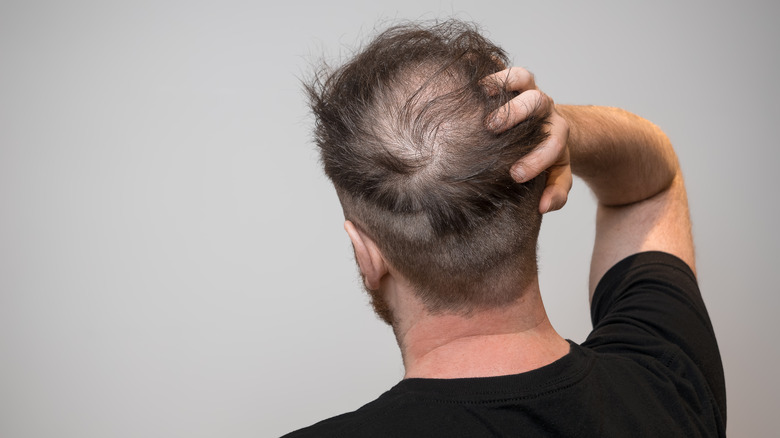Is Hair Loss Preventable?
Many people worry about losing hair when they get older. Hair loss can have many causes from stress to health conditions. Genetics also contribute to the likelihood of hair loss at some point in your life. "There are multiple different genes related to hair loss, and this is a very complex interplay of many genes," said Alison Bruce, MBChB, a dermatologist at Mayo Clinic via Everyday Health. "You shouldn't assume you've done anything to cause your hair loss, especially if you are otherwise healthy."
If you are genetically predisposed to lose hair as you get older, there probably isn't much you can do to prevent it. However, if your hair loss is caused by something else, you may be able to stop it from happening or at least slow down the progress. For example, some vitamin deficiencies can contribute to hair loss. Vitamins that are essential for healthy hair include biotin, vitamin C, vitamin D, and zinc (via WebMD). Taking these supplements can encourage hair growth if you are deficient in any of them. Stress is also linked to hair loss, so lowering your stress levels can also prevent this from happening (via Mayo Clinic). If you are concerned about possible hair loss in the future, speak with your doctor about what to do.
How to treat hair loss
If your hair loss can't be prevented, your next step is to figure out how to treat it. The treatment plan for your hair loss will depend on the cause. For example, if you are losing hair due to a vitamin deficiency, taking supplements to address that deficiency can be an effective treatment option (via WebMD). An iron deficiency is a common cause of hair loss and can be treated by taking an iron supplement and increasing your iron intake with food (via Mayo Clinic).
Some over-the-counter medications are also used to treat hair loss. The most popular of these is called minoxidil, or Rogaine (via Mayo Clinic). This medication comes as a liquid and is rubbed into the scalp twice a day to increase hair growth in the area. Other medications can be prescribed by your doctor depending on the cause and extent of your hair loss. The best way to treat hair loss is to speak to a medical professional who can help you determine the cause and best solution.


